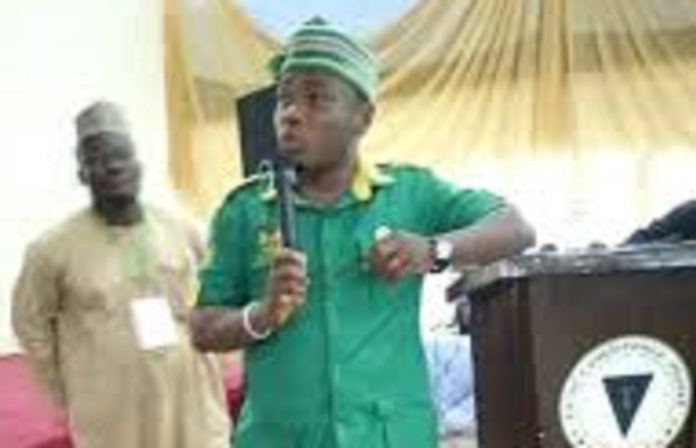Have you ever had a broken window? For those of us who live in the tropics, we avoid broken windows for myriads of reasons. We dread that a broke window would grant unfettered passage to mosquitos or ill wind from rainstorms or unwanted reptiles. A broken window is an invitation to hoodlums. It could even invite the insane for an unsolicited visitation. Aren’t these enough reasons to avoid broken windows?
Nigeria’s ruling party seems to be an association of people who harbor no care. Nor fear. Nor do they worry about the consequences of having not one but several broken windows. Unfortunately for the ruling party, it’s the height of the rainy season. And it’s rainy cats and dogs. And the broken windows are letting in all manner of intruders, termites, locust and the boa constrictor.
Welcome to our house of broken windows
Permit me to go theoretical. So I can relate APC’s broken windows to the Broken Windows Theory. If you’ve never heard of the theory, I’ll save you the headache of seeking its meaning by reproducing it’s Wikipedia definition for your benefit
‘The broken windows Theory’ is a criminological theory that states that visible signs of crime, anti-social behavior, and civil disorder create an urban environment that encourages further crime and disorder, including serious crimes. The theory suggests that policing methods that target minor crimes such as vandalism, public drinking, and fare evasion help to create an atmosphere of order and lawfulness, thereby preventing more serious crimes.
Can you see any correlation between this theory and the APC? If not, please spare me a few more minutes. APC is a house that has encouraged anti-social behaviors and small acts of disorders to thrive. If we go by the Broken Windows Theory, such acts of disorder encourage bigger crimes. Whereas where small acts of disorder are put in check, bigger crimes and disorder are kept in check.
As a political party, APC has been like Mr. Fuji’s house of commotion from the onset. It’s first national convention was almost aborted because the interests that formed the party could not come together to agree on a formulae for sharing party offices. The focus on 2015 general election and the unified purpose of seeking to remove an incumbent President was the saving grace. One would have expected that winning the presidency would help the party develop into one cohesive unit. Far from it. Like Fuji’s house, it has been one commotion after the other.
A juxtaposition of the characteristic of Wilson and Kelling’s Broken Windows Theory and the characteristics of APC’s crisis shows similar correlations. Small crimes, anti social behavior and civil disorder are analogous to the small crisis within wards, local governments and state chapters, that arose from the imposition of unpopular elements as ward officials, councilors, local government and State leaders. The preponderance of such ailments and refusal of APC’s leadership to allow internal democracy at the lowest levels ultimately fester into bigger feuds like the one that has enveloped the national leadership of the party. For proper understanding of the relationship between this theory and the ongoing crisis let us look at the three legs that have fueled the current crisis.
The first is the alleged suspension of Comrade Oshiomolle at his ward. Much as it is attributed to the machination of Governor Obaseki, such suspension, (legitimate or otherwise) would have been impossible if there is no schism within the ward. The second leg is inevitably a hangover from the Zamfara State crisis which traced its root to the 2018 APC congresses. The third is the Rivers State crisis, which like Zamfara traced its root to the 2018 APC congresses. Why was APC not able to solve these supposedly innocuous conflicts within its chapters? Why was there so much arrogance on the part of winners to ‘colonize’ party commonwealth within a few? The outcome of the winner takes all mentality among the party leaders and neglect to resolve minor conflicts have manifested in the ongoing crisis that is bound to shake the party to its shaky foundation.
The authors of the Broken Windows Theory opined that eliminating small crimes have the overall effect of reducing bigger crimes. In the case of APC, elimination minor internal disputes would have prevented the ongoing implosion. Order is only possible in the absence of disorder. APC is in its present position because its leaders failed to seek win-win solutions to several small crises. I hope all the big men in the party can look inward now and accept that they have failed their party members through negligence, unnecessarily obese egos and self aggrandizement. I hope too that it is not too late to save the ship from sinking . Tick… tuck!!!
To all leaders of the opposition parties who are jubilating over the ‘David Luis’ antics of the APC leadership, my advice is that they look inward for the ‘Phil Jones’ in their midst, because ‘Blessed are those whose sins are covered’.
The learning points from the ongoing APC imbroglio is the need for Political leaders to understand that they were thrusted into leadership by ordinary people who bequeathed unto them a power of attorney to manage common patrimony. That ordinary people submitted to your leadership does not in anyway mean that they have submitted their brains, rights to free thinking or freedom to make choices. Leaders must respect and honor those who entrust them with power, not treat them with disdain. All political leader must understand that Political parties are associations of people with often conflicting interest. In such atmosphere, order is only possible where every one is given opportunity to pursue ambitions and ventilate grievances within agreeable parameters. No one should seek zero sum solutions. No one should play God.
Rt.Hon. Godstime Chukwubuikem Samuel







